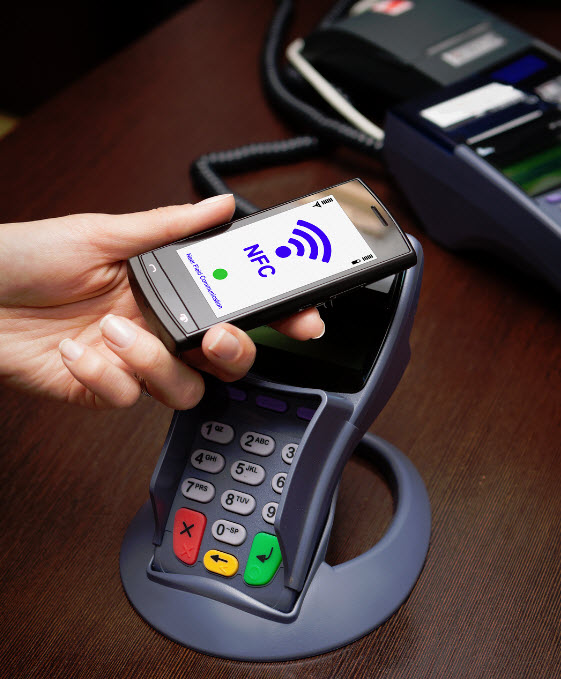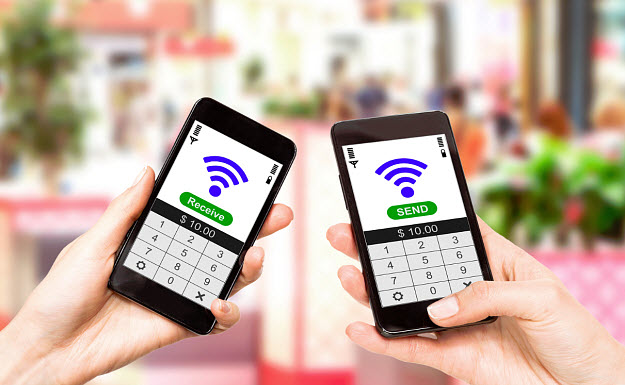New study shows that NFC payments are becoming more common among consumers in the retail sector
NFC-based mobile payments are on the rise throughout the world, according to a new study from Strategy Analytics. The study highlights the growing adoption and availability of NFC-enabled mobile devices. These devices are equipped with NFC chips, which allow them to engage with interactive marketing materials, share digital information from one device to another, and participate in mobile commerce. As these devices become more plentiful among consumers, people are using them to shop online and purchase products from physical stores.
Study predicts that NFC-based mobile payments will represent $130 billion in global spending by 2020
The study shows that NFC-based mobile payments will account for $130 billion in global consumer retail spending by 2020. This is roughly similar to 254 million mobile consumers making as many as five mobile payments every month of $9 or less. The growing availability of NFC-enabled mobile devices and services is powering this growth in the mobile commerce field. One of the latest services to launch, Apple Pay, is having a profound impact on the growth of NFC-based payments.
Apple Pay helps promote mobile spending through NFC technology
 Apple Pay was launched at the end of October this year, and has since become a prominent payment platform among iOS users. The service launched with the support of a wide range of retail partners, many of whom also adopted mobile point-of-sale systems to accommodate the growing number of those paying for products with their mobile devices. Services like Apple Pay are expected to continue powering the growth of the mobile payments field.
Apple Pay was launched at the end of October this year, and has since become a prominent payment platform among iOS users. The service launched with the support of a wide range of retail partners, many of whom also adopted mobile point-of-sale systems to accommodate the growing number of those paying for products with their mobile devices. Services like Apple Pay are expected to continue powering the growth of the mobile payments field.
Some retailers are unconvinced of the value of NFC technology
Retailers have been relatively slow to embrace NFC technology. The cost of adopting NFC-enabled point-of-sale systems is often seen as too high for some retailers, while others are not yet convinced that mobile commerce is anything but a passing trend. As NFC devices become more popular among consumers, these retailers may change their minds and begin supporting mobile commerce more aggressively.
As the company battles to survive and rebuild its relevance, transactions are the new strategy.
As BlackBerry desperately attempts to remain afloat and recreate itself into a position of relevance in the technology world, this Canadian handset maker is now placing a considerable focus on mobile payments as a new major element of its overall strategy.
While the market is currently clearly dominated by Android and iOS devices, BlackBerry isn’t giving up.
The company has now announced its intentions to become considerably more aggressive in the highly competitive and rapidly moving mobile payments environment. It has also confirmed a new three year agreement in which it has now entered with EnStream LP, which is a smartphone transactions joint venture that is owned by Bell, Rogers, and TELUS, the largest wireless carriers in Canada.
The agreement is to provide a secure mobile payments transaction services platform for Canadian banks and consumers.
This agreement will give EnStream the ability to leverage the infrastructure at BlackBerry in order to be able to give a range of mobile operators and financial institutions the capability to provision sensitive credit and debit card data into any NFC technology enabled smartphone.
BlackBerry released a statement that said that “Today the mobile payments space is primed for growth.” It used data that had been produced by Gartner in order to back this up, showing that it has been predicted that the total value of the transactions that will be completed through the use of smartphone technology will rise from where it had been in 2012, at $35 billion, to reach $173 billion by the close of 2017. That represents a tremendous 31 percent compound annual growth rate.
This forecast also includes the purchase of tickets and merchandise, as well as of bill payments. That said, it does not include airtime top-ups or funds that are sent from person to person.
BlackBerry’s statement went on to further explain its position that “Supporting mobile payments reinforces BlackBerry’s ability to provide unique services that help enterprise customers deploy secure mobile solutions that help promote productivity among their workforce and drive new revenue streams.”
 Apple Pay was launched at the end of October this year, and has since become a prominent payment platform among iOS users. The service launched with the support of a wide range of retail partners, many of whom also adopted mobile point-of-sale systems to accommodate the growing number of those paying for products with their mobile devices. Services like Apple Pay are expected to continue powering the growth of the mobile payments field.
Apple Pay was launched at the end of October this year, and has since become a prominent payment platform among iOS users. The service launched with the support of a wide range of retail partners, many of whom also adopted mobile point-of-sale systems to accommodate the growing number of those paying for products with their mobile devices. Services like Apple Pay are expected to continue powering the growth of the mobile payments field.

